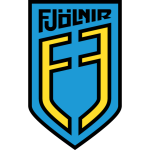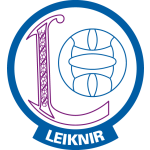Reykjavik Cup (Iceland) - AI Football Predictions Online

| AI | ||
|---|---|---|
 Reykjavik Cup Reykjavik Cup | ||
| 2025-01-04 15:30 |
| 1 1 |
| 2025-01-04 18:30 |
| 1 1 |
Statistics for Reykjavik Cup (Iceland)
The Reykjavik Cup: Iceland's Premier Pre-Season Football Tournament
The Reykjavik Cup stands as a significant event in Icelandic football, capturing the essence of grassroots talent and competitive spirit that defines the nation’s sporting culture. Held annually in the vibrant capital of Reykjavik, this tournament is more than just a series of matches—it's a celebration of local football and a crucial platform for clubs to prepare for the upcoming season. The tournament features teams from various divisions, including top-tier clubs and emerging talents from the lower leagues, creating an exciting mix of competition that showcases the depth of Icelandic football.
A Brief History of the Reykjavik Cup
Established in the early 1990s, the Reykjavik Cup has evolved into a staple of pre-season football in Iceland. Originally conceived as a friendly competition, it has grown in stature over the years, attracting attention from fans and clubs alike. The tournament typically takes place in late winter or early spring, allowing teams to shake off the rust accumulated during the long off-season. The format usually consists of knockout rounds, culminating in a final that is contested under the bright lights of Reykjavik's best stadiums.
One of the unique aspects of the Reykjavik Cup is its ability to bring together clubs from various levels of Icelandic football. For instance, in recent editions, teams like KR Reykjavik, one of the most successful clubs in Icelandic history, have faced off against lower-tier clubs such as Víkingur Reykjavík, showcasing the competitive nature of the tournament and providing smaller clubs with invaluable experience against established opponents. This blend of competition fosters a sense of community and camaraderie among clubs, players, and fans alike.
The Format and Structure of the Tournament
The Reykjavik Cup typically follows a straightforward knockout format, with teams drawn against each other in the initial rounds. Each match is played over 90 minutes, and in the event of a tie, the game may proceed to penalties to determine the winner. This structure not only heightens the intensity of each encounter but also adds an element of unpredictability, as smaller clubs can pull off upsets against more fancied opponents. The semi-finals and final are usually held at prominent venues, often drawing large crowds and generating a festive atmosphere.
In addition to the competitive matches, the tournament serves as a showcase for new talent. Many clubs use the Reykjavik Cup to trial younger players and experiment with tactics that they plan to employ during the league season. Coaches often take this opportunity to evaluate squad depth and make critical decisions regarding player selections. For instance, in the 2022 edition, young midfielder Arnar M. Jónsson, who had previously been a standout in the youth leagues, made headlines with his impressive performances, catching the eye of scouts from top clubs in Iceland.
The Impact of the Reykjavik Cup on Local Football
The significance of the Reykjavik Cup extends beyond the matches themselves; it plays a vital role in the development of football in Iceland. The tournament fosters local pride and community spirit, as fans rally behind their clubs, creating an electric atmosphere at matches. It also serves as a critical stepping stone for young players aspiring to make their mark in professional football. For many, the Reykjavik Cup is their first taste of competitive football at a higher level, providing them with the experience needed to navigate the challenges of the Icelandic league system.
Moreover, the tournament acts as a catalyst for clubs to engage with their communities. Teams often organize events around the matches, such as meet-and-greets with players, youth clinics, and charity initiatives, further cementing their role in the local fabric. The Reykjavik Cup, therefore, not only promotes competitive football but also strengthens the bonds between clubs and their supporters.
The Reykjavik Cup has witnessed numerous memorable moments and matches that resonate with fans. One such highlight occurred in the 2019 final, where KR Reykjavik faced off against their arch-rivals, Valur. The match was a nail-biter, with both teams exhibiting exceptional skill and determination. KR secured victory through a stunning long-range strike from captain Björn M. Hólm, sending their supporters into a frenzy and solidifying their status as one of Iceland's premier clubs.
Another unforgettable moment came in 2021 when a lower-tier team, ÍB Vestmannaeyja, shocked the footballing world by defeating top-flight champions Breiðablik in the quarter-finals. The underdogs displayed tenacity and tactical brilliance, culminating in a thrilling penalty shootout that will be remembered by fans for years to come. Such moments not only highlight the unpredictable nature of the tournament but also serve as a reminder of the passion and dedication that characterize Icelandic football.
The Road Ahead: Future of the Reykjavik Cup
As the Reykjavik Cup continues to grow in popularity, the future looks bright for this beloved tournament. With increasing participation from clubs across all divisions and a dedicated fanbase, the organizers are continually exploring ways to enhance the experience for both players and spectators. Plans for improved broadcasting capabilities, expanded community engagement initiatives, and the introduction of youth development programs promise to elevate the tournament's profile further.
As Icelandic football continues to gain recognition on the world stage, the Reykjavik Cup will undoubtedly play a crucial role in nurturing local talent and fostering a love for the game. The tournament stands as a testament to the resilience and passion of Icelandic football, ensuring that it remains a vital part of the country’s sporting landscape for generations to come.





